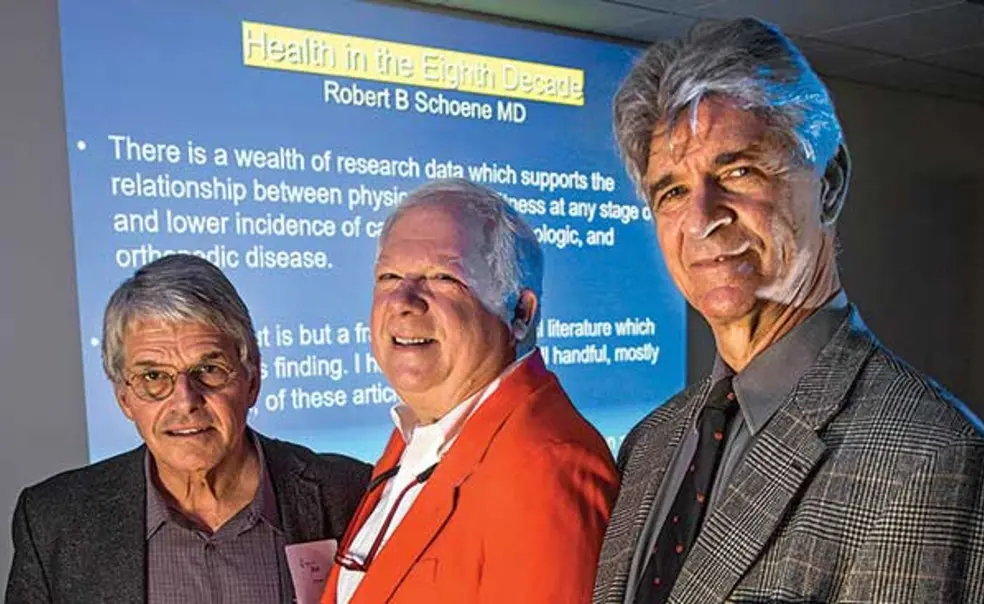The Right Bobs for the Job
Three Bobs — Bob Schoene ’68, Bob Mauterstock ’68, and Bob Weber ’68 — use their collective wisdom to help others navigate life’s second half
Over the past 50 years, three members of Princeton’s Class of 1968 — each of them named Bob — built distinguished careers in financial planning, medicine, and counseling. Not long ago, they decided to bring their divergent expertise together to help their Baby Boomer peers confront the realities of aging.
The three alums — Bob Mauterstock ’68, the financial planner; Bob Schoene ’68, a pulmonary and critical-care physician; and Bob Weber ’68, a former member of the Jesuit order and clinical psychologist — have offered a two-hour presentation that they call Success in the Second Half at their class reunions as well as to groups in Pittsburgh and Washington, D.C.
“Life is fleeting and fragile,” Mauterstock says. “It is important to focus our energy on the critical aspects of our lives while we can.”
On the trio’s agenda are topics such as how to craft a family financial plan, how to prepare for serious medical challenges, and how to achieve spiritual comfort. “There is a symbiotic nature to the messages,” Schoene says.
The three originally met as freshmen on the football team. Mauterstock, who lives on Cape Cod, has written four books, including Caring for Your Elderly Parents: Timely Advice for Baby Boomers. Schoene, from the Bay Area, specializes in high-altitude physiology and exercise, which has taken him to Mount Everest, Denali, and the Andes. And Weber taught and practiced at Harvard Medical School and Massachusetts General Hospital, and he co-authored the book The Spirituality of Age: A Seeker’s Guide to Growing Older.
Over the years, Mauterstock, Schoene, and Weber kept in touch mainly through Reunions. In preparation for their 50th in 2018, Mauterstock approached the other Bobs to see if they’d like to collaborate on a program. When they agreed, he asked classmate Bob Faron ’68 — yes, a fourth Bob — to place it on the reunion schedule. About 150 people attended, asking the Bobs a mix of pragmatic and existential questions.
The strong turnout convinced the three to take their program on the road, and they plan to continue doing so. “We believe we have a very important message,” Mauterstock says. “As we age, we need to find the balance between the financial, medical, and spiritual aspects of our lives.”
At the session in Washington, Mauterstock and Schoene emphasized the importance of end-of-life health directives, saying the key was communicating honestly with family members. Weber, meanwhile, urged audience members never to stop asking the larger questions about themselves. “I’m never able to get a final, definitive answer” to all the questions, he said, but by asking them, “I always learn something.” Marc Lackritz ’68, who attended the sessions both at Reunions and in D.C., said the Bobs’ counsel and takeaways “were clear and concise” and “backed up by scads of research and data.”
Asked for his overarching advice for people in their second half of life, Weber told his peers that even though aging presents challenges, they shouldn’t “miss the many opportunities that our aging offers us.”












No responses yet